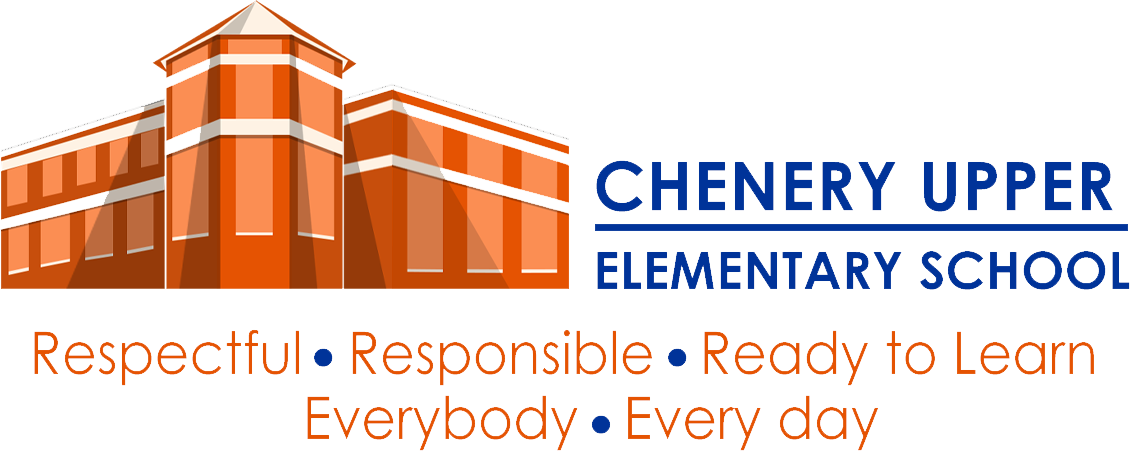School Info
W. L. Chenery School: Philosophy of Education
The mission of Chenery School is to inspire and support the intellectual, social and emotional growth and well-being of all students in the CMS community. With the support of families, we provide opportunities for students to think, create, reason and problem solve so that they can be positive and productive young adults who are of service to others.
At Chenery School we share a set of beliefs and values that inform and guide our words and actions. Throughout the year we will discuss these and explore how we can continue to foster them in our school. These core values are represented by our school’s motto:
CHENERY C.A.R.E.S.; We value:
Cooperation . Agency . Responsibility . Empathy . Self-Regulation
By making these values central to our time together, we will be successful in ensuring the academic, social, and emotional growth of all children.
The Chenery School opened in 1997 in a new, three-levels, state-of-the-art facility arranged around a courtyard and include a 700-seat auditorium, 450-seat cafeteria, integrated media center, two computer labs, band and chorus rooms, several community rooms, and fully networked technology equipped classrooms. Outside are basketball courts, tennis courts, a baseball field, and other grassy playing fields maintained by the Belmont Recreation Department.
In 2024, the Chenery Upper Elementary School decided to include principles of the Responsive Classroom approach to develop a school wide positive behavior model. As part of this effort, a multidisciplinary team of CUE School educators developed the following plan to:
a) Improve students’ social emotional well being;
b) Further develop a positive learning climate for all at the CUE;
c) Improve student behavior using a positive, strength-based approach; and
d) Enhance students’ cognitive growth.
With these goals in mind, the guiding principles of Responsive Classroom adopted by Chenery Upper Elementary School are:
The social curriculum is as important as the academic curriculum.
How children learn is as important as what they learn: reflective process over product.
All students will start the day with Morning Meeting/Responsive Advisory Meeting (RAM) using the 4 part structure.
Lesson planning will include Active Teaching Pedagogy.
Actively build and track teacher knowledge about every student in their Morning Meeting /Responsive Advisory Meeting group.
Provide brain breaks every 45 minutes throughout the school day.
Will respond to misbehavior with logical consequences and examine how our biases impact our discipline.
To be successful academically, emotionally, and socially, children need to learn and practice specific social skills.
House Model
To foster a smaller, supportive learning environment within our larger school, we are excited to introduce our two-house system: Waverly House and Cushing House. Each house will serve as a close-knit learning community where students can thrive.
Waverly House: Led by Assistant Principal Lauren Giunta, this house is located on the first and second floors. It will include:
students in our LABBB program,
classrooms 4A - 4G,
Grade 5 Red, Orange, and Yellow Teams and,
Grade 6 Ice and Wind Teams.
Cushing House: Led by Assistant Principal Jennifer Mathews, this house will encompass:
classrooms 4H-4N,
Grade 5 Green, Blue, Teal, and Violet Teams and,
Grade 6 Earth and Fire Teams.
Each house will have monthly community meetings to celebrate academic achievements and highlight our Chenery CARES values: Cooperation, Agency, Respect, Empathy, and Self-Regulation. These values will guide our interactions and help us build a positive, inclusive school culture. We’ll also ensure there’s plenty of fun along the way!
School Improvement Plan
Section 59C of chapter 71 of the General Laws: "The principal of each school, in consultation with the school council established pursuant to this section, shall on an annual basis…develop and submit for approval by the district superintendent and school committee a plan for improving student performance. Plans shall be prepared in a manner and form prescribed by the department of elementary and secondary education and shall conform to any policies and practices of the district consistent therewith."
The SIP is posted when available here: School Improvement Plan
Teams
As a team, groups of teachers all work with a common group of students, which allows for students and teachers to know one another well and works closely together over the course of the school year.
See House and Teams Here See House and Teams Here
Upper Elementary School Structure
Fourth Grade students are in self-contained classrooms with one teacher. Fifth grade students learn in 2 - teacher teams. Sixth grade students are organized in a team of four teacher core teams.
Non-Discrimination Information
The Belmont Public Schools does not discriminate on the basis of race, color, religion, national origin, age, gender, sexual orientation or disability in admission to, access to and treatment in its programs and activities or in employment. The following person has been designated to handle inquiries regarding our non-discrimination policies:
Ms. Lucia Sullivan, Assistant Superintendent for Curriculum and Instruction
Belmont Public Schools
644 Pleasant Street
Belmont, MA 02478
617-993-5410
The Belmont School Department complies fully in the implementation of Chapter 622 of the Acts of 1971 of the General Laws of the Commonwealth, Title IX of the Education Amendments of 1972, Title VI of the Civil Rights Act of 1964, and Section 504 of the Rehabilitation Act of 1964.
More information regarding our non-discrimination policies is available here.
